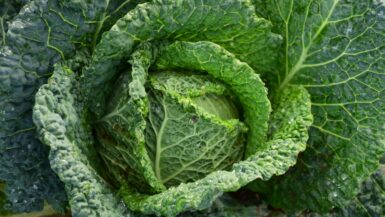Protein is an essential nutrient that plays a crucial role in building and repairing tissues, producing enzymes and hormones, and maintaining a healthy immune system. Eating a high-protein diet has become increasingly popular among health enthusiasts and athletes due to its numerous benefits. In this article, we will discuss the advantages of consuming a high-protein diet, the recommended daily intake, and the best sources of protein. Whether you’re looking to build muscle, lose weight, or improve your overall health, a high-protein diet can help you achieve your goals.
What is a high-protein diet and how does it work?
A high-protein diet is a dietary approach that prioritizes the consumption of protein-rich foods while limiting the intake of carbohydrates and fats. Protein is an essential macronutrient that plays a crucial role in building and repairing tissues, including muscles, bones, and skin. It is composed of amino acids, which are the building blocks of protein. When we consume protein, our body breaks it down into these amino acids, which are then used to repair and build muscle tissue.
A high-protein diet works by providing the body with a surplus of amino acids, which can then be used to build and repair muscle tissue. This is particularly beneficial for people who are looking to build muscle mass, as it provides the body with the necessary building blocks to do so. Additionally, protein is also more satiating than carbohydrates or fats, meaning that it can help to reduce hunger and promote feelings of fullness. This can be helpful for people who are looking to lose weight or maintain a healthy weight.
While a high-protein diet can be beneficial for many people, it is important to note that it may not be appropriate for everyone. People with certain medical conditions, such as kidney disease, may need to limit their protein intake. Additionally, it is important to ensure that the protein sources in a high-protein diet are healthy and varied, as consuming too much protein from unhealthy sources can have negative health consequences. Overall, a high-protein diet can be a healthy and effective dietary approach for many people, but it is important to consult with a healthcare professional before making any significant changes to your diet.
The role of protein in building and repairing muscles
Protein is an essential nutrient for building and repairing muscles. When you engage in physical activity, such as weightlifting or resistance training, you create small tears in your muscle fibers. In order to repair these tears and build new muscle tissue, your body needs to have access to an adequate supply of protein.
When you consume protein, it is broken down into its component amino acids. These amino acids are then used by the body to synthesize new proteins, which are used to repair and build muscle tissue. Amino acids are also important for maintaining the structure and function of existing muscle tissue.
Consuming an adequate amount of protein is essential for anyone who is looking to build or maintain muscle mass. This is particularly important for athletes and bodybuilders, who need to consume enough protein to support their training regimens. However, it is also important for older adults, who may experience muscle loss due to age-related changes in the body.
It is worth noting that while protein is important for muscle growth and repair, it is not the only factor that contributes to muscle development. Other factors, such as exercise, sleep, and overall nutrition, also play important roles. However, ensuring that you are consuming enough protein is an important step towards building and maintaining strong, healthy muscles.
How a high-protein diet can help with weight loss
A high-protein diet can be an effective tool for weight loss. One reason for this is that protein is more satiating than carbohydrates or fats, meaning that it can help to reduce hunger and promote feelings of fullness. This can be particularly helpful for people who struggle with overeating or snacking between meals.
Additionally, protein has a higher thermic effect than carbohydrates or fats, meaning that it requires more energy to digest and metabolize. This can lead to a slight increase in metabolism, which can help to burn more calories throughout the day.
A high-protein diet can also help to preserve lean muscle mass while promoting fat loss. When you lose weight, your body tends to lose both fat and muscle. However, consuming a high amount of protein can help to minimize muscle loss while promoting fat loss. This is important because muscle tissue is more metabolically active than fat tissue, meaning that it burns more calories at rest. By preserving muscle mass, a high-protein diet can help to support a healthy metabolism and make it easier to maintain weight loss over time.
However, it is important to note that simply increasing protein intake is not a magic solution for weight loss. In order to lose weight, it is important to create a calorie deficit by consuming fewer calories than you burn through physical activity and daily functioning. A high-protein diet can be a helpful tool for achieving this deficit, but it is not a substitute for overall healthy eating habits and regular exercise.
Tips for incorporating more protein into your diet:
- Choose protein-rich foods such as meat, fish, poultry, eggs, and dairy products.
- Incorporate plant-based protein sources such as beans, lentils, nuts, and seeds into your meals.
- Consider using protein supplements such as whey protein powder or pea protein powder to increase your protein intake.
- Replace high-carbohydrate snacks with protein-rich snacks such as Greek yogurt, hard-boiled eggs, or jerky.
The benefits of a high-protein diet for athletes and active individuals
Athletes and active individuals have higher protein requirements than sedentary individuals, as protein is essential for building and repairing muscle tissue. Consuming a high-protein diet can provide many benefits for athletes and active individuals, including:
1. Improved muscle growth and recovery
Consuming a high-protein diet can help to promote muscle growth and repair. This is particularly important for athletes and active individuals, as they are constantly breaking down and rebuilding muscle tissue through their training regimens. By consuming enough protein, athletes can ensure that their bodies have the necessary building blocks to repair and build new muscle tissue.
2. Increased strength and power
Protein is also important for increasing strength and power. Studies have shown that athletes who consume a high-protein diet have greater gains in strength and power compared to those who consume a lower protein diet. This is likely due to the role that protein plays in building and repairing muscle tissue.
3. Reduced muscle soreness
Muscle soreness is a common issue for athletes and active individuals, particularly after intense training sessions. However, consuming a high-protein diet can help to reduce muscle soreness and promote faster recovery. This is because protein is essential for repairing damaged muscle tissue, which can help to reduce inflammation and soreness.
4. Improved body composition
Consuming a high-protein diet can also help to improve body composition by promoting fat loss while preserving lean muscle mass. This is important for athletes and active individuals, as having a lower body fat percentage can improve athletic performance and reduce the risk of injury.
While a high-protein diet can be beneficial for athletes and active individuals, it is important to ensure that protein intake is balanced with other important nutrients such as carbohydrates and healthy fats. Additionally, it is important to choose protein sources that are healthy and varied, such as lean meats, fish, eggs, dairy, and plant-based sources like beans and nuts.
The impact of a high-protein diet on blood sugar levels and diabetes
A high-protein diet can have both positive and negative effects on blood sugar levels and diabetes. On the one hand, consuming protein does not cause a significant increase in blood sugar levels, as it does not contain carbohydrates. This can be beneficial for people with diabetes, as it can help to prevent spikes in blood sugar levels.
Additionally, consuming protein can help to promote feelings of fullness and reduce hunger, which can be helpful for people with diabetes who are trying to manage their weight. Maintaining a healthy weight is important for managing diabetes, as excess body fat can contribute to insulin resistance and high blood sugar levels.
However, it is important to note that consuming too much protein can have negative effects on blood sugar levels and overall health. When the body consumes excess protein, it can be converted into glucose through a process called gluconeogenesis. This can lead to an increase in blood sugar levels, which can be problematic for people with diabetes.
Additionally, consuming too much protein can put a strain on the kidneys, particularly in people with pre-existing kidney disease. This is because the kidneys are responsible for filtering out waste products from protein metabolism, and consuming too much protein can increase the workload on the kidneys.
Overall, a high-protein diet can be beneficial for people with diabetes as long as it is balanced with other important nutrients and consumed in moderation. It is important to work with a healthcare professional to determine the appropriate amount of protein for your individual needs and to ensure that your overall diet is healthy and balanced.
The effects of a high-protein diet on heart health
There is some evidence to suggest that a high-protein diet may have both positive and negative effects on heart health. On the one hand, consuming protein can help to reduce levels of LDL cholesterol, which is the “bad” type of cholesterol that can contribute to heart disease. Additionally, consuming protein can help to reduce blood pressure, which is another risk factor for heart disease.
However, it is important to note that consuming too much protein, particularly from animal sources, can have negative effects on heart health. Studies have shown that consuming high amounts of red meat, for example, can increase the risk of heart disease and other health problems. Additionally, some high-protein diets may be high in saturated fat, which can also contribute to heart disease.
It is worth noting that the source of protein is important when it comes to heart health. Consuming protein from plant-based sources such as beans, lentils, and nuts has been shown to be beneficial for heart health. These sources of protein are typically lower in saturated fat and higher in fiber, which can help to reduce cholesterol levels and promote heart health.
Overall, a high-protein diet can be beneficial for heart health as long as it is balanced with other important nutrients and consumed in moderation. It is important to choose protein sources that are healthy and varied, and to limit consumption of saturated fats and processed meats. Working with a healthcare professional or registered dietitian can help to ensure that your diet is healthy and balanced for optimal heart health.
The Benefits of a High-Protein Diet for Bone Health
A high-protein diet can also have positive effects on bone health. This is particularly important for older adults, who are at a higher risk of developing osteoporosis and other bone-related conditions.
How Protein Helps Build Strong Bones
Protein is an essential nutrient that plays a crucial role in building and maintaining bone health. In fact, bones are made up of around 50% protein, and studies have shown that a high-protein diet can lead to increased bone mineral density and a reduced risk of fractures.
One reason for this is that protein helps stimulate the production of insulin-like growth factor 1 (IGF-1), a hormone that promotes bone growth and development. Additionally, protein provides the building blocks needed to create new bone tissue and repair damage to existing bone.
The Benefits for Older Adults
As we age, our bones naturally become weaker and more prone to fractures. However, research has shown that a high-protein diet can help slow this process and reduce the risk of osteoporosis and other bone-related conditions.
One study published in the Journal of Bone and Mineral Research found that older adults who consumed a high-protein diet had a lower risk of hip fractures compared to those who consumed less protein. Another study found that a high-protein diet combined with resistance training led to increased bone mineral density in postmenopausal women.
How to Incorporate More Protein into Your Diet
If you’re looking to improve your bone health through diet, there are plenty of high-protein foods to choose from. Some good options include:
- Lean meats like chicken, turkey, and fish
- Eggs
- Dairy products like milk, cheese, and yogurt
- Beans and legumes
- Nuts and seeds
It’s important to note that while a high-protein diet can have benefits for bone health, it’s still important to consume a balanced diet that includes plenty of fruits, vegetables, and whole grains. Additionally, it’s always a good idea to speak with a healthcare professional before making any significant changes to your diet.
The Potential Risks and Drawbacks of a High-Protein Diet
While a high-protein diet can have many benefits, there are also some potential risks and drawbacks to consider. It’s important to weigh these factors carefully before starting a new diet or significantly increasing your protein intake.
Increased Risk of Kidney Damage
One potential risk of a high-protein diet is an increased risk of kidney damage. This is because the kidneys are responsible for filtering waste products from the blood, and high levels of protein can put extra strain on them.
However, it’s important to note that this risk is primarily associated with individuals who already have kidney disease or other kidney-related conditions. For healthy individuals, a moderate increase in protein intake is generally safe.
Potential for Nutrient Deficiencies
Another potential drawback of a high-protein diet is that it can sometimes lead to nutrient deficiencies. This is because many high-protein foods are low in other important nutrients like fiber, vitamins, and minerals.
To avoid this issue, it’s important to focus on incorporating a variety of nutrient-dense foods into your diet, including plenty of fruits, vegetables, and whole grains.
Potential for Weight Gain and High Cholesterol
While a high-protein diet can be beneficial for weight loss in some cases, it’s important to be mindful of overall calorie intake. Consuming too many calories, even from protein, can still lead to weight gain.
Additionally, some high-protein foods like red meat and full-fat dairy products can be high in saturated fat, which can increase cholesterol levels and contribute to heart disease.
How to Incorporate Protein Safely
To safely incorporate more protein into your diet, it’s important to focus on lean sources of protein like chicken, fish, and beans. It’s also a good idea to balance your protein intake with plenty of fruits, vegetables, and whole grains, and to speak with a healthcare professional before making any significant changes to your diet.
Tips for Incorporating More Protein into Your Diet
If you’re looking to increase your protein intake, there are plenty of easy and delicious ways to do so. Here are some tips to help you get started:
Start with Breakfast
One of the easiest ways to incorporate more protein into your diet is to start with breakfast. Try adding some Greek yogurt, eggs, or a protein shake to your morning routine to help keep you feeling full and satisfied throughout the day.
Choose Lean Sources of Protein
When selecting protein sources, it’s important to choose lean options like chicken, fish, and beans. These foods are not only high in protein, but also low in saturated fat and calories.
Snack Smart
Snacking is a great opportunity to sneak in some extra protein throughout the day. Try snacking on some nuts, seeds, or a hard-boiled egg for a protein-packed pick-me-up.
Get Creative with Your Meals
There are plenty of creative and delicious ways to incorporate more protein into your meals. Try topping your salad with some grilled chicken or adding some tofu to your stir-fry for some extra protein and flavor.
Don’t Forget About Plant-Based Protein Sources
While animal products are a great source of protein, there are also plenty of plant-based options to choose from. Foods like quinoa, lentils, and chickpeas are all high in protein and can be easily incorporated into a variety of meals.
By incorporating these tips into your diet, you can increase your protein intake in a safe and healthy way. As always, it’s important to speak with a healthcare professional before making any significant changes to your diet.





Leave a reply